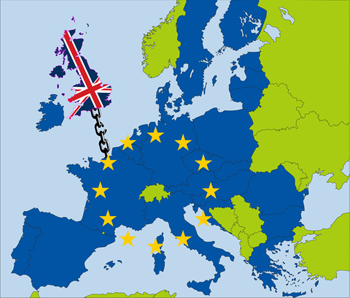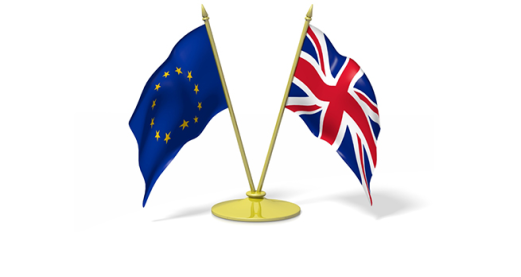 In January 2013 the Prime Minister David Cameron promised an in-out referendum on United Kingdom’s membership to the European Union. He said a lot of things about the relationship to the EU and how Britain needs to be given more influence, but he did not really explain what this referendum is actually about. In the meantime Cameron promised that if the Conservatives were to be re-elected, such a referendum would be taking place before the end of 2017.
In January 2013 the Prime Minister David Cameron promised an in-out referendum on United Kingdom’s membership to the European Union. He said a lot of things about the relationship to the EU and how Britain needs to be given more influence, but he did not really explain what this referendum is actually about. In the meantime Cameron promised that if the Conservatives were to be re-elected, such a referendum would be taking place before the end of 2017.
So then, what do we mean when we are talking about this EU referendum?
Well, a referendum asks the public to have a vote. It is like an election really, but without any candidates or complicated party lists. For a referendum a simple question is posed, which can only be answered with Yes or NO. We do not know the question for the suggested EU referendum yet, but it is quite likely to be something along the lines of:
Are you in favour of the United Kingdom’s membership to the European Union? Yes / No
A question asked in a referendum has to be clear and precise. It has to be easy to understand without any complicated sentence structure or confusing vocabulary. However, sometimes a negation in the sentence can confuse the whole vote:
Are you in favour of the United Kingdom not being a member of the European Union? Yes / No
No matter which way the question is posed, people will see a campaign just as they do in the run up to the general election. There are different views on The UK’s membership to the European Union and some of the discussions have been quite heated. In April last year Nick Clegg, the party leader of the Liberal Democrats, and Nigel Farage, the UKIP leader, had a heated TV debate about the possible consequences of leaving the European Union. Nick Clegg is in favour of a membership and does not even see any need for a referendum, whereas Nigel Farage’s party and its success are also result of very EU-critical policies. The critic was said to have won this battle but has he won the war?
The outcome of a referendum of this kind has the potential to hugely impact on The UK’s internal and external affairs. It is, therefore, essential to inform the public about possible consequence of either result, without involving party politics. Otherwise, people may have a vote expecting one thing but getting another. The idea of a referendum is to find out what people want and to then put this into practice; but how can people say which cake they want, if they do not know what those cakes on offer are going to taste like?
It is difficult to foresee the actual consequences, which is why most of the politicians involved stick to very vague assumptions. However, it is worth pointing out one very important factor of the membership of the European Union: the single market. The single market is the main reason why joining the European Union was, and still is, so popular. With this Union, the Member States created among them one big market where they can sell and buy any goods, services, resources, information etc. they want and need. It is like the farmer’s market around your corner, but on a much bigger scale.
Every Member State has access to this big unified single market without having to pay any customs duties, tariffs or fees when trading on it. Leaving the EU would mean losing all access to this market. Buying French wine and German cars can cost twice as much as it does now, as the import customs will have to be added to the price. However, this is only one side of the story. Even worse, trading British products with other nations will become very difficult, as those nations importing goods will, again, have to add the customs. The UK will most likely have to find and establish their own agreements with those nations it wants to trade with but it will have a very isolated standing in agreeing the terms and conditions for these agreements. The European Union’s single market has the strength and interest of 28 markets, that is the number of current Member States. The UK would only have itself.
Of course, trade is not all a country needs but it is quite an essential element for growth and stability of nation that prides itself for the impact it has in the world. In the run up to a referendum of this kind, people need to have the chance to inform themselves about the consequences. Otherwise, the referendum would not fulfil any purpose at all and Politians may have as well just answered the question amongst themselves.
What do you think about the EU referendum? Is it much ado about nothing? Post your thoughts in the comments section below.
Relevant links:
David Cameron's letter to the European Council President
European Union - How the EU Works - Facts and Figures - The Economy
This article is part of an EU Referendum Hub. To find out more from the official 'leave' campaign visit 'Vote Leave' and to find out more from the official 'stay' campaign visit 'Britain Stronger In Europe'.
Please note: The opinions expressed in this hub are those of the individual authors, and do not represent the views of The Open University.



Rate and Review
Rate this article
Review this article
Log into OpenLearn to leave reviews and join in the conversation.
Article reviews
Nick Jones - 29 February 2016 5:51pm
(Terrible graphic - making the connection between the UK and Europe a chain you are sending a subliminal message that the connection is negative.)
Of course Europe isn't perfect and there are aspects of membership that we might like to change, but leaving would be a disaster.
New Trading relationships with the world, not just Europe, would be needed and could take a decade to establish and the consequent economic damage would be substantial.
The reasons for setting up the Eurpoean Union, as expressed by Churchill after WW2, still apply.
We would be marginalised if we were to leave, economically and politically.
Nick Jones - 29 February 2016 5:51pm
(Terrible graphic - making the connection between the UK and Europe a chain you are sending a subliminal message that the connection is negative.)
Of course Europe isn't perfect and there are aspects of membership that we might like to change, but leaving would be a disaster.
New Trading relationships with the world, not just Europe, would be needed and could take a decade to establish and the consequent economic damage would be substantial.
The reasons for setting up the Eurpoean Union, as expressed by Churchill after WW2, still apply.
We would be marginalised if we were to leave, economically and politically.
Anne Wesemann - 20 April 2016 2:15pm
It is a worry of mine that the EU's imperfection is at the focus of the Leave campaign. How is the leaving the EU going to solve any democratic deficit or disfuntionional institution?
The UK is losing its powerful stand in the EU, were it to leave to vote.
Your estimate regarding the establishment of trade deals is an interesting one and certainly possible. Especially considering that the TFEU provides for a minimum two year transition period for any Member State to leave the Union. Meaning, even if the UK would be voting to leave, the process would not be completed before 2018 and the UK will still be holding the presidency in 2017.
John Gibson - 14 May 2015 5:19pm
An act of folly to seek a referendum on this subject. To walk away from this enormous market would be a disaster in the making. Of course it's not perfect but better to stay in and help to make it work better rather than opt out. Stick to the economic aspects and drop any ideas of federalism. Greece may not have that chance, let's see what happens to them!
Anne Wesemann - 15 May 2015 1:31pm
I think you are saying some very important things here. By leaving the UK expects to be out of the influence of European Union politics, but it does underestimate what it will mean to lose all impact on policies set, politics made and legislation passed. The UK often seems to view itself as one of 28 being outnumbered by most, but I believe they are viewed by many as a partner in setting European Union policies in a certain manner, whether we personally agree with it or not.
Also, personally, I agree with you that a referendum on this is a risky endavour. However, I also believe in democracy and referenda are the simplest way of engaging with the people. The only issue is that by posing a simple question about a diverse topic, the risk of people not actually voting for what they want, because they do not understand the details, is quite high. Campaigners have a big job to do!